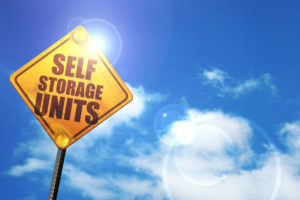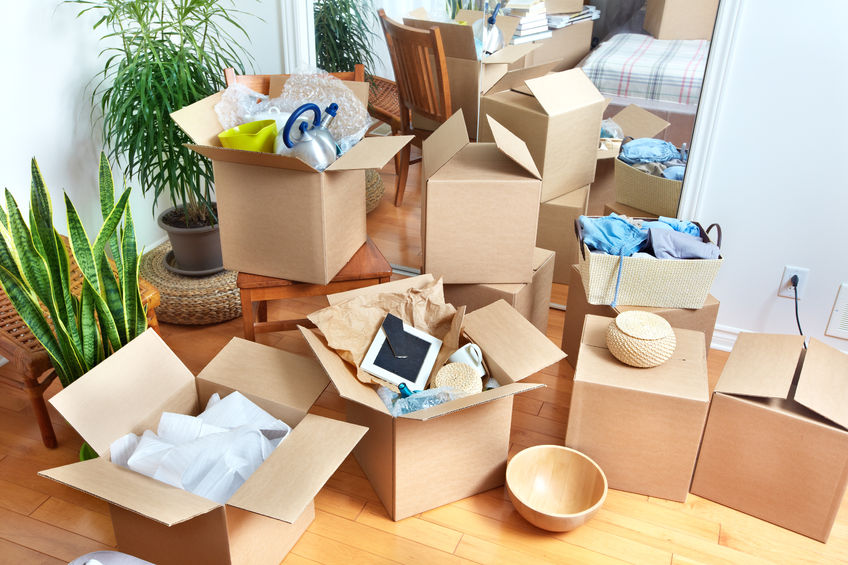 If like millions of other Americans you’ve decided that renting a self-storage unit is the ideal solution for your space management problems, you’ll need to do some research and comparison, to find the storage facility that’s best suited to you.
If like millions of other Americans you’ve decided that renting a self-storage unit is the ideal solution for your space management problems, you’ll need to do some research and comparison, to find the storage facility that’s best suited to you.
Once you’ve asked around, done some Google searches, and narrowed your list down to the most likely suspects, you’ll be in a position to put these facilities under the microscope. Either by phone or (better) during an in-person visit, here are a few Self-Storage FAQs, or the key questions that you should ask the management and staff of a storage facility before renting.
Self-Storage FAQs – #1) How do you keep your site and storage units secure?
Perimeter fencing, surveillance cameras, personalized locks on each unit, patrolling guards, live-in management: All of these are signs of a positive approach to security. They may not all be available, but a combination of several of them is a good sign.
Self-Storage FAQs – #2) How often can I get access to my unit?
Gate hours (during which time their office may be closed, but you’ll still have access) typically run from 6 a.m. to 10 p.m. But the facility may have extended hours on top of this, with 24-hour access in some cases. You should also ask about the features they have to make it easier to get to your unit (ramps, elevators, hand trucks, etc.).
#3) How can I get in touch with your management or staff, if I need help?
Ideally, the site manager should be available during office hours, seven days a week (except major holidays). For troubleshooting and general inquiries, there should be a contact phone number or email.
#4) What can I store – and what can’t I?
There should be a clearly visible list (at the facility, and on their website) of materials you can and cannot store – and any special rates or conditions that apply to certain types of items.
#5) How big are the units available?
The range of unit sizes available will determine which one you should go for. This should be in line with what you’ve previously estimated, based on the materials you want to store.
#6) Have you had any previous issues with theft, water damage, fire, other?
Their answer here speaks to their attitude on-site maintenance and security. Positive signs to look for include smoke alarms, drainage channels, fencing and security grilles, computerized access locks, etc.
#7) What do you do about pest control?
Rodent and insect damage can wreak havoc on self-storage items. Look for signs that the facility is kept clean and pest-free. Management should be in a position to say how often the site and units are fumigated.
#8) Do you offer indoor, climate controlled storage?
If you’re looking to store documents, electronic goods, furniture, or other sensitive items, your unit should be climate-controlled through ventilation, air-conditioning, moisture barriers, and temperature regulation. This kind of indoor self-storage usually costs more than the standard price, so you’ll need to ask about this too.
#9) How much does the rental cost, and what are the terms of your contract?
Try to get an all-inclusive figure with basic rental, security deposit, surcharges, and any other fees that might be applicable. Rental charges should typically be payable month-to-month, but there may be other options, including discounts for long-term storage contracts.
#10) Do you require insurance? How much does it cost?
Documented proof of insurance is usually a requirement before a rental contract can be signed – and facilities will typically offer an insurance plan of their own. Prices vary but are usually considerably more expensive than the coverage you can purchase (beforehand) from a reputable independent insurance provider.
And Finally – Self-Storage FAQs #11) What does your insurance policy cover – and what doesn’t it cover?
The insurance offered by a storage facility usually doesn’t cover very much. Cover for damage due to flooding, rodents, earthquakes, and named storms are often lacking entirely. And there may be other conditions (limited cover for expensive items, motor vehicles, etc.) that make getting insurance from a reputable third party the safer option.
What’s My Best Choice for Storage Unit Insurance?
Simply put? In terms of its pricing, coverage, convenience, and reliability, the SnapNsure™ Contents Program is your best choice.
Insurance for your self-storage unit may be purchased directly through the SnapNsure™ website, allowing savings of 50% to 70% per month compared to other plans. This arrangement also allows you the luxury of selecting your storage facility, then paying for coverage on-site via mobile phone. Policies may be paid for on an annual or monthly basis, with coverage starting as soon as you’ve paid your first month’s premium, and your signed application is received online by the company.
And every SnapNsure™ policy has a standard $100 deductible.
And the comprehensive coverage you’ll get with SnapNsure™ also allows you to add specific incidents coverage for Named Storms, Flood, Rodent, and Earthquake – a combination of options which is uniquely offered in the U.S. by one company alone: SnapNsure™. Remember too that SnapNsure™ is the only insurance provider which offers Named Storm coverage for self-storage, at all.
SnapNsure™ is an independent (third-party) provider – so you won’t be tied into a limited coverage insurance plan from your storage facility. As an assurance of reliability, SnapNsure™ is underwritten by The Hanover Insurance Group – the holding company for one of the largest admitted insurance carriers in the United States.
Clearly, it makes good sense to get the Self Storage Unit Insurance coverage you need from SnapNsure™. Get Insured now!



